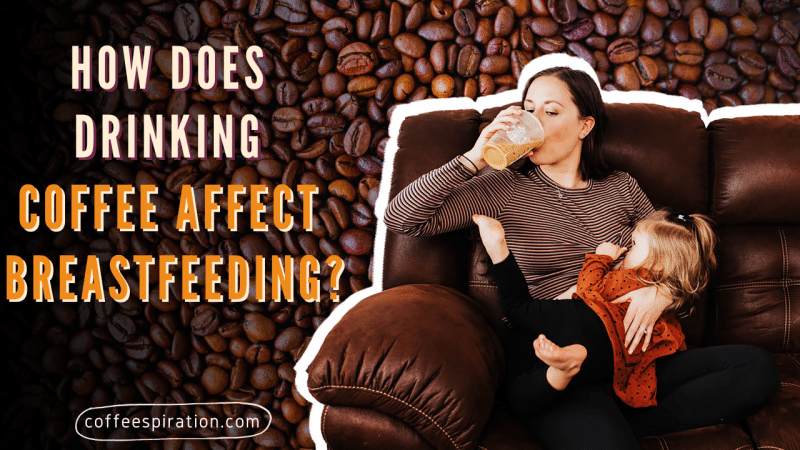A lot of mothers have gone 9 months without a cup of coffee in the morning or a glass of wine at night by the time their newborn arrives. Many of them are relieved to learn that they can still enjoy caffeine and alcohol while breastfeeding.
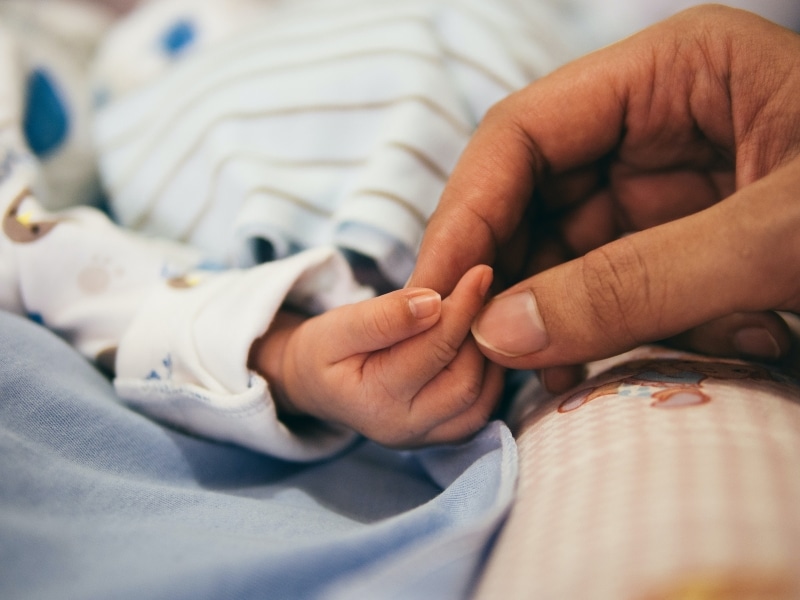
If you’re reading this, you’ve probably made it through nine months of reducing or eliminating some of your favorite foods and beverages while pregnant too. So now that you’re a nursing new mother, you might be wondering what’s on the menu again and what you still need to avoid.
Caffeine may be at the top of your list during breastfeeding. Is it safe to consume coffee, tea, or soda at pre-pregnancy levels, in tiny amounts like you did when you were pregnant, or not at all?
Contents
Is It Really Okay to Drink Caffeinated Beverages While Breastfeeding?
Yes, just as when you’re pregnant, it’s safe to drink coffee and other sources of caffeine while nursing. You don’t have to give up your love for coffee simply because you’re a mother. Since Caffeine at modest levels is unlikely to harm your kid.
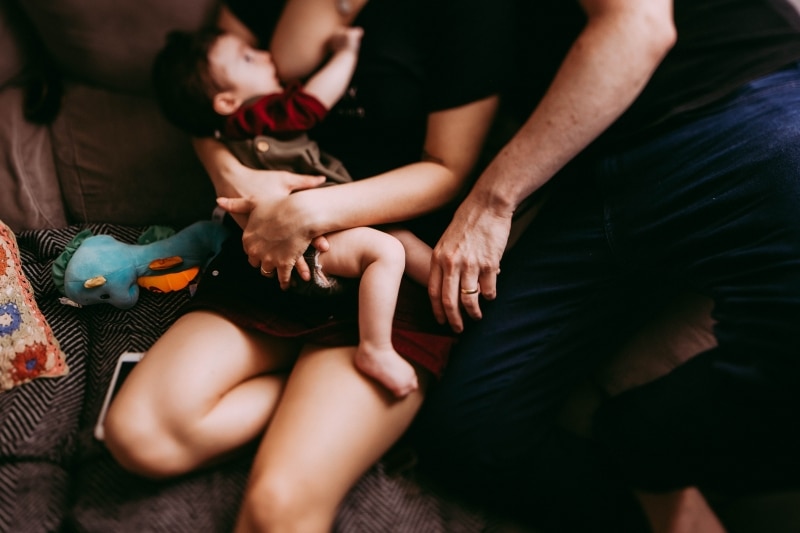
We can’t blame a mom for needing a pick-me-up after a late night or an early morning. Being a mother is exhausting. A moderate amount of caffeine in moderation will not affect your breastfeeding kid.
A little quantity of caffeine can be passed on to your baby through breast milk when it enters your circulation. The majority of babies are unaffected, although some sensitive infants may become more irritable or awake after drinking milk containing trace quantities of caffeine.
How Much Coffee Can You Drink A Day While Breastfeeding?
Take into account that the amount of caffeine in a cup of coffee varies based on the type of coffee bean and the amount of time it is brewed. Caffeine intake should be limited to roughly 200 to 300 milligrams per day, according to experts.
While nursing, between 0.06% and 1.5% of the maternal caffeine dose reaches the baby. Other foods and beverages that contain caffeine include tea, chocolate, energy drinks, and sodas. When determining your daily caffeine intake, remember to include all caffeine sources.
When it comes to most meals and drinks during breastfeeding, moderation is crucial, and caffeine is definitely no exception. So don’t feel obligated to give up your daily cup or two of coffee or tea just because you’re nursing.
How Much Caffeine Is There In A Cup of Coffee?
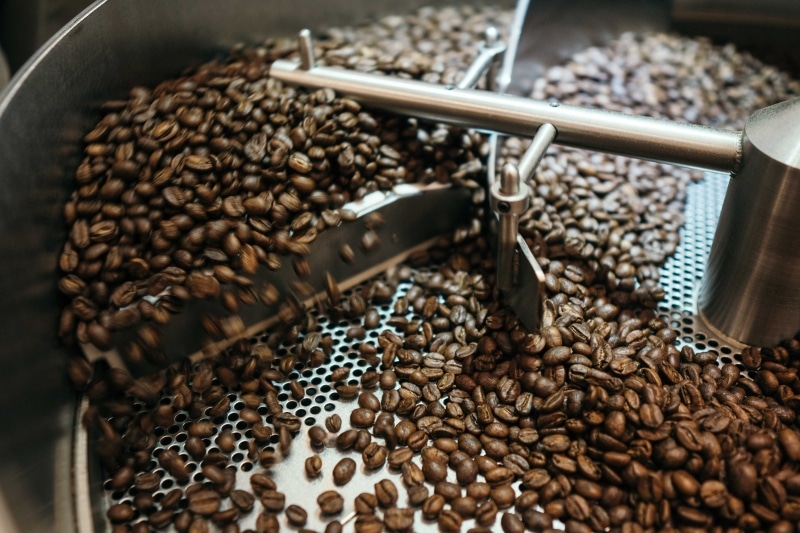
The amount of caffeine in a cup of coffee can vary substantially between brands and depending on brewing times and other factors. The size of what you could consider a cup of coffee varies substantially.
As a result, depending on how large your cup of coffee is and what coffee drink you’re drinking, the caffeine level of “one cup” can range from 30 to 700 mg.
Are Light Roasts Better Than Other Roasts During Breastfeeding?
Caffeine levels may not differ as much between roasts as you may imagine. It all boils down to how coffee is weighed: light roast beans have more mass, whereas dark roast beans have less.
If light and dark roasts are compared solely on the basis of volume, light roasts may contain significantly more caffeine. When the caffeine content is calculated by weight, the caffeine content may be the same.
Will Drinking Coffee While Nursing Put The Baby At Risk?
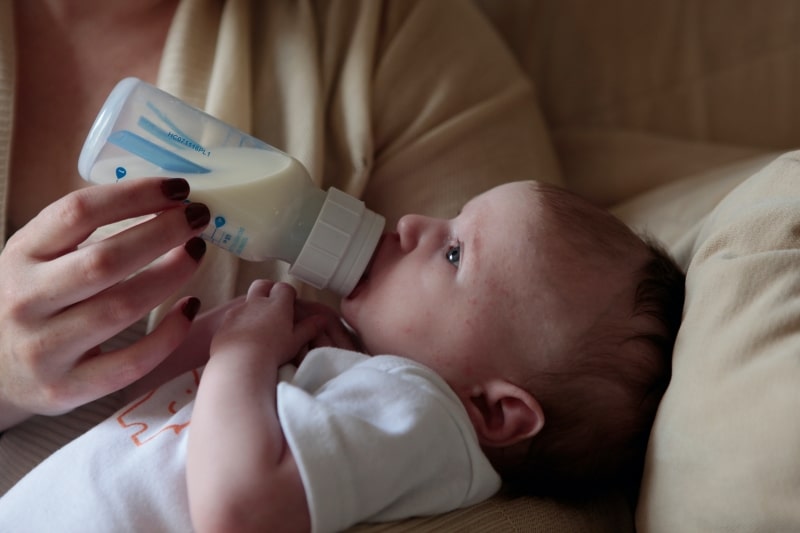
Caffeine consumption of a mild or moderate amount poses no risk to your child. However, every baby is different when it comes to how they will react to your coffee intake or if at all.
You shouldn’t have any problems if you stick to the recommended amounts and consume it a few hours before feeding your baby. But, if you’re concerned about coffee and nursing, or if you have any questions, don’t hesitate to consult your doctor.
Possible Effects of Caffeine on Newborns
If you drink 10 cups or more than the recommended amount of coffee each day, your baby may experience the following negative impacts:
- Restlessness
- Changes in sleeping patterns
- Irritability
- Agitation
If your baby is sensitive to coffee, she may become agitated or irritable, as well as have difficulties sleeping or settling down. Just keep an eye on them and see if reducing your coffee intake and having it a few hours before feeding helps.
Caffeine is broken down more slowly in preterm and younger newborn infants, hence moms of these babies should consume even less caffeine.
Possible Effects of Caffeine on Nursing Mothers
Drinking too much coffee might have negative consequences for moms as well. Drinking more than four cups of coffee each day might cause irritation, anxiousness, and restlessness.
Migraines, difficulty sleeping, frequent urination, upset stomach, high heart rate, and muscle tremors are some of the other side effects that may make it more difficult for moms.
Will Drinking Coffee Reduce The Amount of Breast Milk Produced?
There’s no evidence that moderate doses of coffee or caffeine affect the amount of breast milk your body produces. If you stick to the appropriate amounts, you shouldn’t have any issues.
Pumping and Dumping
You’ve probably done a lot of research on this topic and might have seen the phrase “Pump and Dump”. The term “pump and dump” is usually used in relation to drinking alcohol while breastfeeding.
It basically means you pump out any milk that has been tainted by a potentially dangerous ingredient, such as alcohol or caffeine. Pumping is mainly used to maintain your supply if you don’t want to feed your baby at a specific time.

This technique does not remove any contaminants from your milk. Instead, you’ll have to wait for the caffeine in your breastmilk to naturally metabolize. If you’re worried that your baby will get caffeine from your breast milk, keep in mind that caffeine levels in breast milk peak one to two hours after you drink your coffee.
To lessen the chance of giving caffeine to your baby, enjoy a cup of coffee shortly before feeding your baby, or wait until after you’ve finished feeding your baby if your infant spends more than 2 hours between feedings.
References
